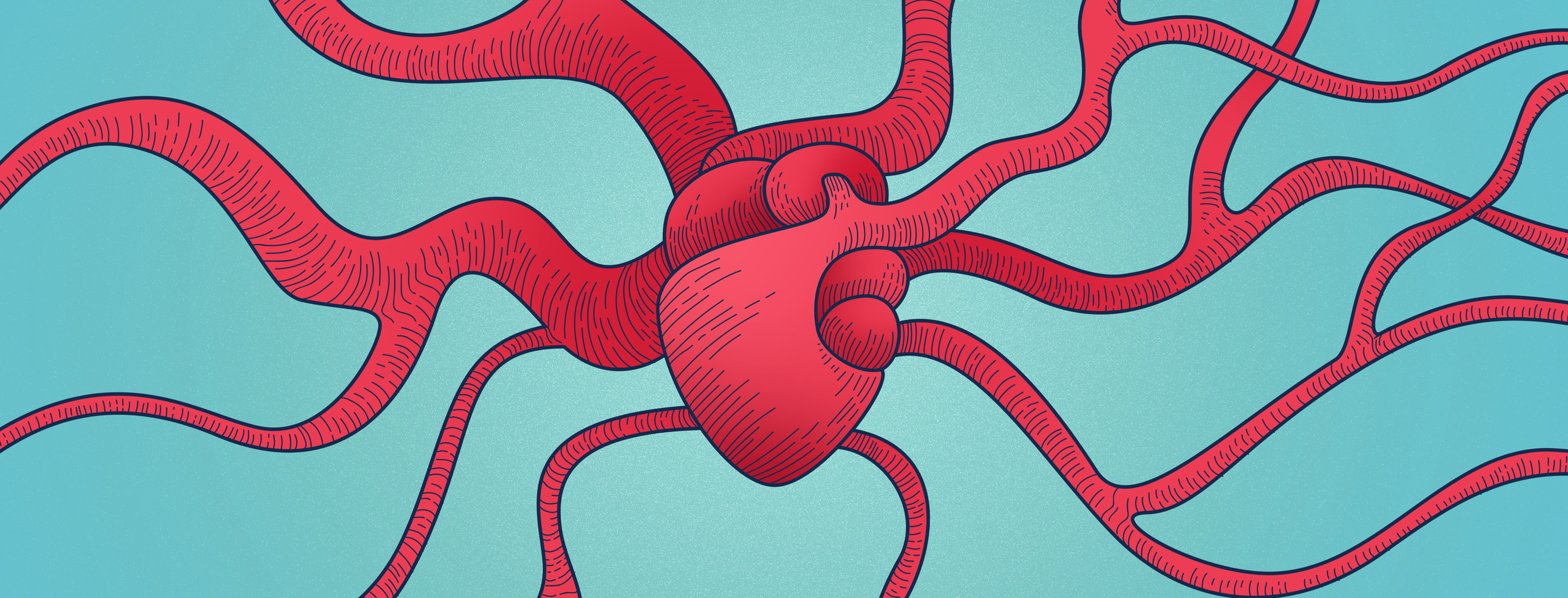Cardiovascular Conditions Linked to COPD
Reviewed by: HU Medical Review Board | Last updated: November 2021
It is common for people with chronic obstructive pulmonary disease (COPD) to also have medical conditions that involve the cardiovascular system. The cardiovascular system is made up of the heart and all the blood vessels that carry blood throughout the body.1
Cardiovascular diseases linked to COPD include:1
- Ischemic heart disease
- Heart failure
- Atrial fibrillation
- Peripheral vascular disease
- High blood pressure
What is ischemic heart disease?
Ischemic heart disease (IHD) is the leading cause of death in the United States. It is sometimes called coronary heart disease or coronary artery disease.2
Arteries are the blood vessels that deliver oxygen-rich blood to the heart. IHD is the name for the condition that happens when the arteries cannot bring enough blood to the heart. The arteries usually become narrow because of the buildup of a fatty substance called “plaque.” If blood cannot flow to the heart because the arteries are too narrow or blocked, this can cause a heart attack.2
Treatment for IHD depends on the factors that impact the risk you face of having a heart attack. Treatment could involve medicine like beta blockers or surgery, in serious cases. Your doctor might suggest a statin (cholesterol-lowering drug) if your cholesterol level is high. Additionally, your doctor will recommend healthy lifestyle changes such as:2
- Eating a healthy diet
- Losing weight if necessary
- Maintaining an exercise routine
- Cutting back on drinking
- Quitting smoking
- Getting enough sleep
What is heart failure?
Heart failure happens when your heart fails to pump enough blood for your body’s needs. It can be caused by your heart being too weak to properly function. It can also happen if your heart cannot fully fill up with blood.3
Heart failure does not mean your heart has completely stopped. However, it is still dangerous and needs to be treated. Symptoms of heart failure include shortness of breath, tiredness, and swelling in the legs and ankles.3
People with COPD who also have heart failure might get the same treatment as those without COPD. Treatment for heart failure depends on the type of failure. Treatment often includes medicines to treat its cause, which might be IHD, high blood pressure, or diabetes. Heart failure can also be treated with lifestyle changes.3
What is atrial fibrillation?
Atrial fibrillation (AF) is a common type of arrhythmia, or irregular heartbeat rhythm. People with AF have hearts that beat too quickly and in an irregular way. Because the heartbeat is too quick and not pumping correctly, the heart is not able to pump enough blood through the body.4
Symptoms of AF include:4
- Dizziness
- Tiredness
- Chest pain
- Heart palpitations
Some people can have AF without showing any symptoms. It can lead to serious complications like blood clots or stroke.4
People with COPD usually get the same treatment for AF as people without COPD. AF is often treated with medicines that help the heart beat at a regular rate, as well as making sure the blood is thin to prevent stroke. Your doctor may also recommend lifestyle changes. In some cases, AF is treated with surgery.4
What is peripheral vascular disease?
Peripheral vascular disease (PAD) happens when the blood vessels that lead away from your heart narrow because of plaque buildup. These blood vessels are called your peripheral arteries.5
PAD reduces the flow of blood to your limbs, which can cause pain, infections, and in severe cases, amputations. Symptoms of PAD include pain or weakness that happens during physical activity.5
Treatment for PAD depends on how severe a case is. Sometimes, it is just treated with lifestyle changes to lower the risk of complications. Other people may need surgery or medicines to bypass or open the blood vessels.5
What is high blood pressure?
High blood pressure, also called hypertension, is very common in people with COPD. High blood pressure happens when blood flows through the vessels at a pressure that is consistently higher than normal.6
Though not always true, high blood pressure can be silent without symptoms. Because of this, it is a good idea to get your blood pressure checked regularly, at the suggestion of your doctor. High blood pressure can lead to serious conditions like heart attacks and strokes.6
People with COPD who have high blood pressure usually get the same kind of treatment as people without COPD. Your doctor may first try to control your blood pressure with lifestyle changes. If this is not successful or if you are at a high risk of complications, you may be treated with medicine as well.6
